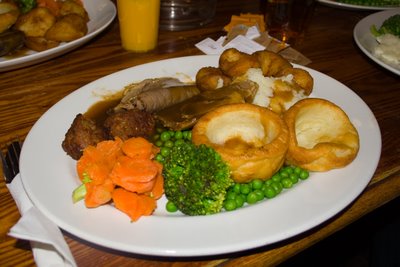I am RELIEVED to say that we have FINALLY moved into our new home. And what an ordeal it has been. Buying a house in England couldn’t be more different than buying one in America.
For starters, a seller is free to list with as many agencies as he wants. It’s not uncommon to see more than one agency’s sign in front of a house for sale. The selling agency gets all the commission; the listing agency gets nothing. But the sale must go through one of the listing agencies.
Commissions here are very low compared to those in America (only 1-2% vs 6-7%). “Estate agents” are paid salaries by the agencies and get very little of the commission earned by the selling agency, therefore estate agents have very little incentive to really sell a place. Also, estate agents in England do not have to be licensed (although the agency does).
When you make an offer to buy a place, there is no legally binding contract. The seller is free to take as many offers as he likes and is not obligated to sell the property. “Gazumping” is a very common problem here and will continue to be until they change the real estate laws. Gazumping is when a seller accepts an offer from one interested party only to accept a higher offer later on from someone else. Unfortunately for the buyer, agents are legally obliged to tell sellers about any other offers on the property. Even if the property is taken off the market once your offer is accepted, anyone who previously viewed the property can still make a bid. If they do, then the agent cannot keep this fact hidden from the seller.
Once you make an offer to buy property, you (the buyer) have to start spending money (all non-refundable) to get the purchase underway without any binding agreement or guarantee that the seller will go through with it. You have to hire a “solicitor” (attorney) to act on your behalf while the seller has his own solicitor acting on his behalf. The realtor doesn’t really have to do anything else once they’ve gotten an offer on the property. All communication is done via the two solicitors.
Your solicitor will arrange the surveys and other legal work that has to be done. Only AFTER all this legal work is done, and only AFTER you obtain a mortgage guarantee from a lender can you actually “exchange” contracts. The sale is not legally binding UNTIL the contracts have been exchanged, and this doesn’t happen until the END of the whole process. As a buyer, you are pretty much screwed if anything goes wrong, since you have no protection whatsoever.
Once the “exchange” is ready to take place, you do not attend a closing or anything like that. Instead, your solicitor will mail you copies of the contract and other paperwork to be signed and witnessed by any non-family member (it can even be a stranger, but it does not even need to be notarized). The paperwork will also get mailed to the seller to countersign. Once everyone has signed, the two solicitors contact you and the seller to inform them that the contracts have been “exchanged.” Once this happens, both parties are obligated to go through with the deal.
On the exchange date, you are also notified of the “completion date,” which normally takes place about a week after exchange. This gives the lender time to transfer monies to your solicitor, who then transfers it to the seller’s solicitor, who then notifies the estate agent that the sale is complete and the keys can be released. So even though as a buyer you effectively “own” your property as of the exchange date and effectively are paying interest on the mortgage from that date, you cannot actually take possession of your new home for another week!
Another disadvantage to buying a home in England (as though there needed to be another one) is that the seller is not obligated to do any repairs, etc. on the home. If an inspection reveals a major defect in the home, then you as the buyer can opt out of the deal. But the seller is in no way obligated to make any repairs. Therefore, all purchases tend to be “as is.” You can choose to have your solicitor write up the contract to state otherwise (like asking the seller to make repairs, etc.), but with so many other people typically chomping at the bit to buy the house, there is no incentive whatsoever for the seller to agree to such a contract. Therefore, as a buyer, you are not protected in any way should the seller decide to trash the property before you move in. You are also not protected should you discover a major defect in the property that was not disclosed.
Now you know why I am so RELIEVED to finally say we have moved into our new home!!!


